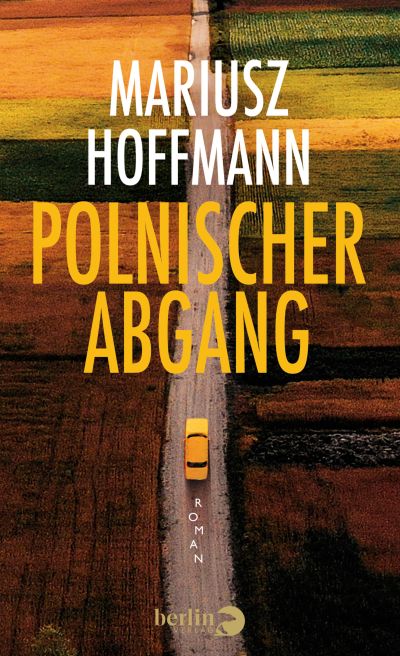Mariusz Hoffmann – from a village in Silesia to Werne and then Berlin

Mariusz Hoffmann began writing when he was eleven. It started with a diary, then long letters, which he sent to various penpals in the post. At 20, he used narrative passages from his letters as starting material for short stories. “Even then”, he recalls, “I nurtured a secret hope that I would reach a larger readership.”
He has his grandmother Agnieszka to thank for his fascination for short stories. In his eyes, she was the best storyteller during his childhood. He loved it when she put everything she had into recounting memories, or telling fairytales or gruesome real-life stories. “Her voice sounded different when she was telling stories”, he says. “I was enthralled every time.” In this way, he developed his love of reading at a young age. When he read particularly gripping books, he thought: “I want to do this, too. Write in an exciting, pointed, humorous way. Not just for me, but for other people.”
In his youth, there were numerous authors whose books he loved. However, one key moment for him came in 2006, when he bought Irvine Welsh’s novel “Trainspotting” for one Euro at a flea market in Hamburg. He recalls: “I was familiar with the film of the same name. I didn’t know that it was based on a novel. Without knowing what to expect, I started reading the book, and was blown away. This style of writing, the characters, the moods, the critical jibes against Scottish society... For me, it was a revelation in terms of all the possibilities that literature has to offer.”
But how to become an author? Especially when for your family, “literature” is an exotic hobby for wealthy people. Like many other writers, Mariusz Hoffmann’s life took on several interesting twists and turns prior to his becoming a writer. After taking his “Abitur” school-leaving exams, he first spent a period of time as a civilian volunteer in Hamburg (in lieu of mandatory military service – translator’s note). He then enrolled as a student of philosophy in Hamburg, although he soon realised that this was not for him. He decided to do something “normal” and took a job with an institution for young adults with behavioural problems. Since he wasn’t entirely happy working there, he applied to study in Leipzig and Hildesheim, the only places in Germany offering a degree in creative writing. When his application was accepted by the University of Hildesheim, he was euphoric. He remembers that the other students in his year had similar feelings. “However, by the third semester at the latest, the euphoria had vanished”, he explains. “Now there were periods when everything that we wrote suddenly sounded banal and bad, and the doubts grew as to whether we had what it took to become an author in the first place.”
The many meetings, during which the students talked about their own texts and those written by others, only served to exacerbate this self-doubt. On the other hand, Hoffmann regards these discussions particularly as being the most important aspect of the degree course. In his mind, the comments that were made, including the ones that hurt, helped a great deal when it came to improving his own writing and sharpening his sense of when a text worked well and sounded good.



